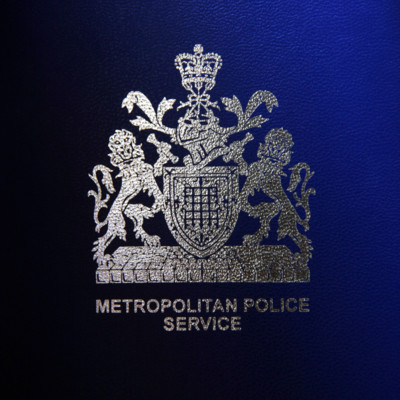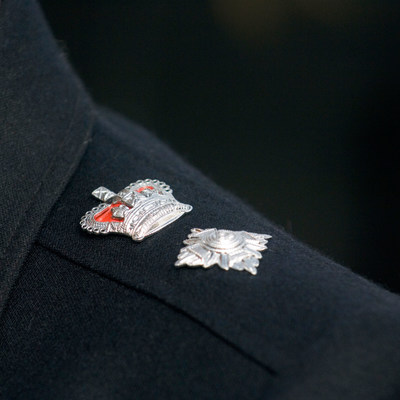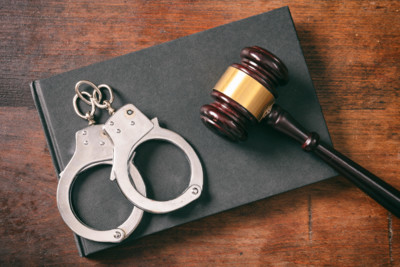Police Code of Ethics
"evidence is the cement of the
criminal justice system.
the integrity of the criminal
justice system is founded upon
the integrity of evidence,
the integrity of the way in which
it is gathered,and the integrity
with which it is tested at trial.
evidential integrity is the
guarantor of fair trial".n
Dr Clive Harfield.

Police Caution
"you are under arrest on
suspicion of (offence)
you do not have to say anything,
but it may harm your defence if
you do not mention when
questioned something which
you later rely on in court".
The Seven Principles of
Public Life.
Known as "the Nolan Principles",which are
the basis of the ethical standards expected
of public office holders.
The seven principles apply to anyone who
works as a public office holder.
This includes people who are elected or
appointed to public office,nationally and
locally,and all people appointed to work in
"the police"
The seven principles are,
SELFLESSNESS
Holders of public office,should act solely
in terms of the public.
INTEGRITY
Holders of public,office,must avoid placing themselves under any obligation to people or organisation that might try inappropriately to influence them in their work.
They should not act or take decisions in order
to gain financial or other material benefits for themselves,their family,or their friends.
They must declare and resolve any interests
and relationships.
OBJECTIVITY.
Holders of public office,must act and take decisions impartially,fairly and or merit,using
the best evidence and without discrimination
or bias.
ACCOUNTABILITY
Holders of public office,are accountable to the
public for their decisions and actions,and must submit themselves to the scrutiny necessary
to ensure this.
OPENNESS
Holders of public office,should act and take
decisions in an open and transparent manner.
Information should not be withheld from the
public,unless there are clear and lawful reasons
for so doing.
HONESTY.
Holders of public office should be truthful.
LEADERSHIP.
Holders of public office,should exhibit these
principles in their behaviour.
They should actively promote and robustly
support the principles and be willing to
challenge poor behaviour whenever it occurs..
Code of Ethics
"the Code of Ethics makes explicit the ethical principles that should guide the difficult decisions that everyone in policing has to make every day
of the week".
College of Policing
Board Chair
Professor Dame Shirley Pearce.

Code of Ethics
"the vast majority of people who work in policing are hardworking,honest people who want to serve their communities,
the Code of Ethics clearly defines the expectation of standards and behaviour for everyone in policing,and brings policing into line with other trusted professions that have such codes,like those in medicine and law".
College of Policing
Chief Executive Chief Constable
Alex Marshall.
POLICING PRINCIPLES.
The College of Policing has written a
Code of Ethics published in 1995 by
the Committee on Public Life.
Made up of
nine policing principles and
ten standards of professional behaviour.
The policing principles originate from the
principles of public life,with the
ten standards of professional behaviour
originating from the
Police (conduct) Regulation 2012
and the Police Staff Council Joint
Circular 54.
The Public expect the police to do the
right thing,in the right way,basing decisions
and actions on a set of policing principles
will help to achieve this.
ACCOUNTABILITY.
You are answerable for your decisions,
actions and omissions.
FAIRNESS.
You treat people fairly.
HONESTY.
You are truthful and trustworthy.
INTEGRITY.
You always do the right thing.
INTEGRITY.
You always do the right thing.
LEADERSHIP.
You lead by good example.
OBJECTIVITY.
You make choices on evidence and your
best professional judgement.
OPENNESS.
You are open and transparent in your
actions and decisions.
RESPECT.
You treat everyone with respect.
SELFLESSNESS.
You act in the public interest.

Standards of Professional
Behaviour.
Standards of Professional Behaviour reflect
the expectation that the public and the
police force,have of the behaviour of those
working in policing.
HONESTY and INTEGRITY.
I will be honest and act with integrity at all
times and will not compromise or abuse my position.
AUTHORITY,RESPECT and COURTESY.
I will act with self-control and tolerance,treating
members of the public and colleagues with
respect and courtesy.
I will use my powers and authority lawfully and
proportionately,and will respect the rights of all
individuals.
EQUALITY and DIVERSITY.
I will only use force as part of my role and
responsibilities,and only to the extent that
it is necessary,proportionate,and reasonable
in all circumstances.
USE of FORCE
I will as a police officer,give and carry out
lawful orders only,and will abide by
POLICE REGULATIONS.
As a police staff member,I will give reasonable
instructions only,and will follow all reasonable
instructions.
DUTIES and RESPONSIBILITIES.
I will be diligent in the exercise of my duties
and responsibilities.
CONFIDENTIALITY.
I will treat information with respect,and
access or disclose it only in the proper
course of my duties.
FITNESS FOR WORK.
I will ensure,when on duty or at work,
that I am fit to carry out my responsibilities.
CONDUCT.
I will behave in a manner,whether on or off
duty,which does not bring discredit on the
police service or undermine public confidence
in policing.
CHALLENGING and REPORTING
IMPROPER BEHAVIOUR.
I will report,challenge or take action against
the conduct of colleagues,which have fallen
below the Standard of Professional Behaviour.
